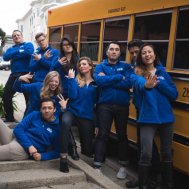
Every child’s education is important. Regardless of age, income, or ethnicity, they are all entitled to the same access to learning and education. But with the prevalence of learning disabilities like attention deficit disorder (ADD), attention deficit hyperactivity disorder (ADHD), and dyslexia, what are schools and teachers doing to make sure students are getting the kind of help they need?
In the U.S. alone, there are 6.4 million children between the ages of 4-17 diagnosed with ADHD, and over 3 million that suffer from dyslexia. To help students who need special requirements, many education companies have taken action to make sure there is a level playing field. For example, the College Board, which administers AP exams, SAT, and PSAT, offers 3 different time options, depending on the disability the student has. Similarly, IBO typically offers a 25% time extension on all exams, while ACT offers a 50% time extension. While extended time is the most sought after option, there are many other options students can request, like large-type exam.

But time extensions aren’t a magical cure that can give students the A they want. Extended time serves as a confidence booster, allowing them to be aware of the fact that they can afford to take their time to re-read and understand questions. Allison Schwartz, a graduate student from Columbia, has shared via the Yale Center for Dyslexia and Creativity that “the extra time can only get a person so far. Trust me, extra time does not make you into a superhero where you can overcome any calculus or philosophical problem in a single leap. You either know the materials from learning them or you don’t.”
Though a widely debated issue, many people still doubt these disabilities, some of which can be difficult to prove. Competitive students are led to believe that it is a form special treatment that they would like as well, causing an increase in Adderall usage - now a commonly known study drug.
So, what can teachers and school counselors do to help those in need?
















 Back
Back